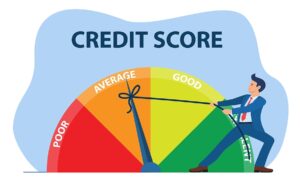Credit SS2 Commerce Lesson Note
Download Lesson Note
Lesson Notes
Topic: Credit

Credit is the ability of a person, individual or corporate entity to buy and enjoy goods and services and pay at a future date usually with interest. The creditworthiness of the buyer must be taken into consideration before granting credit so that it will not lead to bad debt. There should also be a contractual agreement between the seller and the buyer.
BASIS FOR CREDIT SALES.
Credit can be granted based on the following:
- The income of the buyer
- Sources of payment
- Integrity of the buyer
- Availability of guarantors
- Present employment
- Time of payment.
SOURCES OR TYPES OF CREDIT
Sources of credit are as follows:
- Loans: These are formal credits granted to a customer repayable at an agreed date, place and condition. Loan could also be given informally by friends. Loans require collateral securities.
- Overdraft: This is a formal credit granted to customers with current accounts. An overdraft allows a customer to withdraw sums of money over his credit standings. The amount overdrawn is redeemed subsequently as he makes future deposits with interest.
- Lease: This is the permission granted to a leaser to use to use equipment, land plant or machinery for a given purpose {e.g. for the production of goods or the rendering of services} over some time at an agreed condition.
- Trade Credit: This type of credit allows the trader to collect goods from a supplier without paying for them immediately. It is aimed at increasing the quantity of goods sold by the seller.
- Hire Purchase: This is a form of credit whereby the seller allows the buyer to have the possession of the goods on the payment of the first instalment of the agreed price. Under this arrangement, the seller retains ownership of the goods until the last instalment is met otherwise the buyer loses possession to the seller and no refund is made of earlier amount paid.
Advantages Of Hire Purchase To Seller
- The seller gains more as he sells the goods at a higher price than he would have done for cash.
- He sells more goods over a given period.
- He stands to gain whether the buyer defaults or not.
- The system enables the seller to sell fairly durable and expensive
- articles such as motorcycles, computers, television sets, etc.
Disadvantages Of Hire Purchase To The Seller
- The seller may incur additional costs to recover the goods if the buyer defaults.
- The incidence of wear and tear {depreciation} is borne by the seller whose goods are later reclaimed.
- There is the risk of the seller losing the goods completely if the buyer dies, is transferred to another location, or changes address unknown to the seller.
Advantages of Hire Purchase to the Customers
- It allows the customer with little income to buy expensive goods.
- Customers enjoy the advantages of using the goods while payment is on.
- It encourages saving habits for customers.
- It enables people to acquire important household items.
Disadvantages of Hire Purchase to Customers
- The buyer is not given the chance to negotiate favourable conditions
- for sale.
- Customers are made to pay higher interest rates.
- Customers stand the risk of buying more than they could readily pay for.
- The risk of losing both the goods and instalment already is possible.
- The buyer may not be able to insist on his quality goods.
- Deferred Payment: This is a form of credit whereby the seller allows the buyer ownership of the goods on payment of an initial deposit. The seller under this arrangement can only sue for his balance, should the buyer default. Generally, deferred payment facilities favour the buyer while hire purchase favours the seller.
SIMILARITIES BETWEEN HIRE PURCHASE AND DEFERRED PAYMENT
- Under both systems, the hirer and the buyer take possession of the goods.
- Both the hirer and the buyer may start using the goods as soon as the initial deposit is made.
- Both hire purchase and deferred payment attract instalment payment
- The same type of goods such as durable capital goods and durable consumer goods are sold.
- Prices of goods on both systems are often higher than normal sales.
- Both have serious legal implications for the buyer if he defaults on payment




















